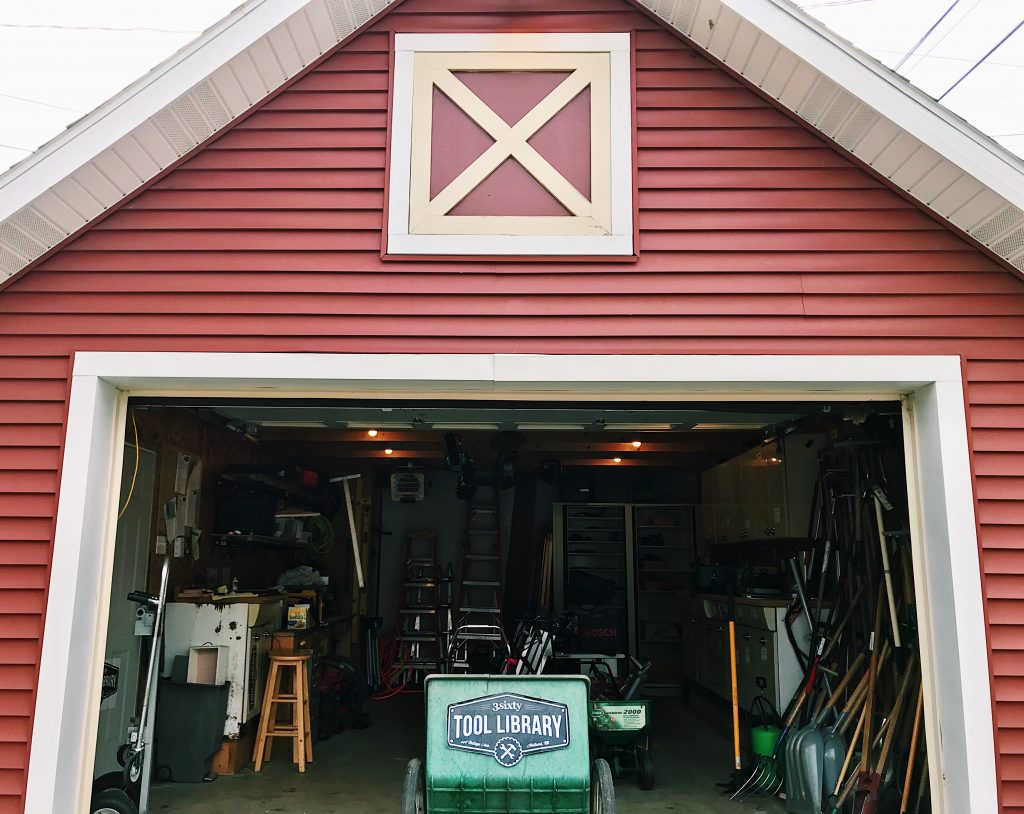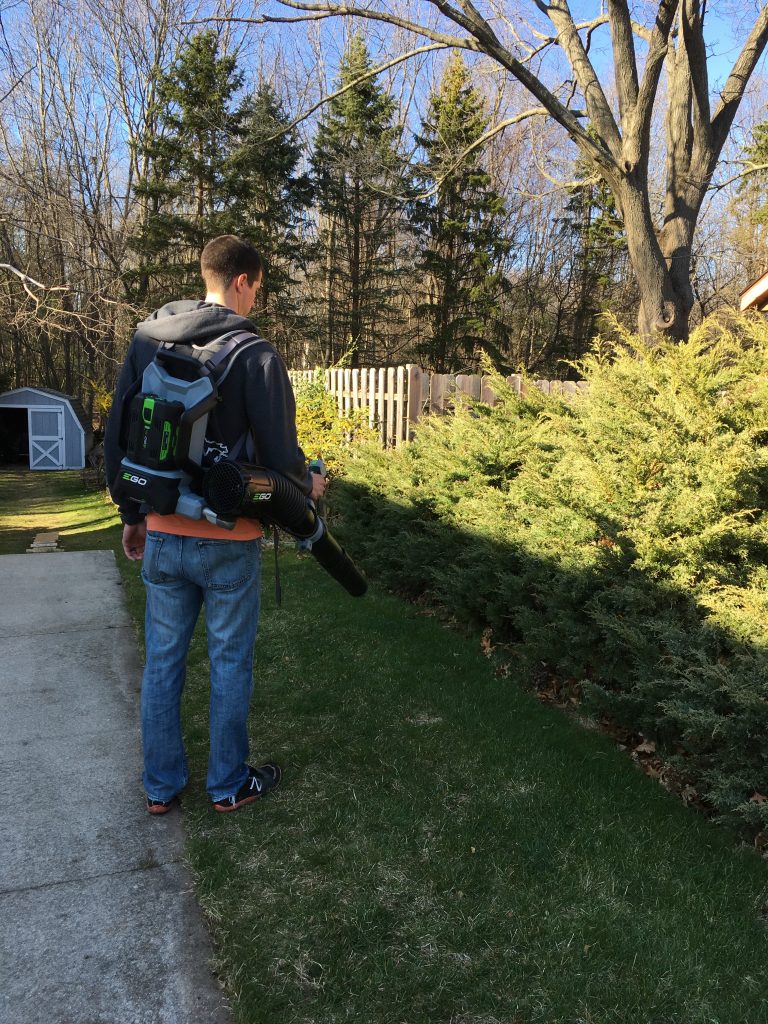By Chris Grant, Citizens Climate Lobby
One day while I was raking leaves, it occurred to me to investigate the decibel level of the leaf blowers in use all around me, with the thought that I might need ear protection while using my rake. A Google search turned up information regarding noise, and also some surprising facts about leaf lower emissions.
Many gas-powered blowers have two-stroke (also called two-cycle) engines that burn a mix of gas and oil. Because combustion is incomplete, the engines add to air pollution by emitting hydrocarbons, nitrogen oxides and carbon monoxide. In fact, a comprehensive study by Edmunds Automotive comparing emissions of cars, pickup trucks and leaf blowers found that two-cycle blowers emitted 299 times the hydrocarbons and 23 times the carbon monoxide as the pickup truck!
One possible explanation for this astonishing result is that, unlike two-cycle engines, diesel and gasoline vehicle engines are highly regulated and much cleaner than decades ago. In other words, two-cycle technology is obsolete, though it’s also used in most string trimmers and chainsaws.
As for noise, typical gas-powered leaf blowers produce 80 to 85 decibels, which can be harmful to hearing, and some less-expensive models may produce up to 112 decibels, with hearing loss possible in less than five minutes. Decibels are calculated in such a way that the relationship between levels is not linear; 120 decibels is 32 times as loud as 70.
And noise diminishes slowly with distance. At least seven jurisdictions in Michigan are attempting to regulate gas-powered leaf blowers by restricting decibel level and/or hours and days of operation.
Alternatives to two-cycle engines include four-cycle models with lower emissions and corded or cordless (battery-powered) electric versions. The use of electric equipment shifts production of greenhouse gases to power plants outfitted with scrubbers that remove pollutants. In Holland, Hope College is currently transitioning away from gasoline engines for some of its landscaping equipment.
Also in Holland, the community organization 3sixty has developed a comprehensive tool-sharing system called the Tool Library. (Although the Tool Library is temporarily closed due to coronavirus concerns, it will reopen at an appropriate time with safety measures in place. Updates will be posted on the neighborhood’s website at www.3-sixty.org.)
Featuring power and non-power tools, most of the library’s blowers, trimmers and mowers are electric. Electric equipment initially can be more expensive than gas-powered choices, a drawback addressed by the borrowing program.
The neighborhood’s website, www.3-sixty.org, includes a short video about the library along with contact, appointment and membership information. It’s also possible to borrow tools for a fee without becoming a member. Use of the Tool Library is open to anyone over 18 years old in the city’s core neighborhoods – Eighth to 24th streets between Ottawa and Fairbanks/Lincoln Avenues.
This cooperative program is a fine example of how to promote sustainability on a local level, an example other neighborhoods and communities might want to explore.
Chris Grant is a City of Holland resident and is interested in helping our community better understand our choices for reducing our carbon footprint. Chris is a member of the Citizens Climate Lobby.
This Week’s Sustainability Framework Theme
Environmental Awareness/Action: Environmental education and integrating environmental practices into our planning will change negative outcomes of the past and improve our future.
ABOUT THIS SERIES
Living Sustainably is a collection of community voices sharing updates about local sustainability initiatives. It is presented by the Holland-Hope College Sustainability Institute, a joint project of Hope College, the City of Holland and Holland Board of Public Works. Go to www.hope.edu/sustainability-institute for more information.




